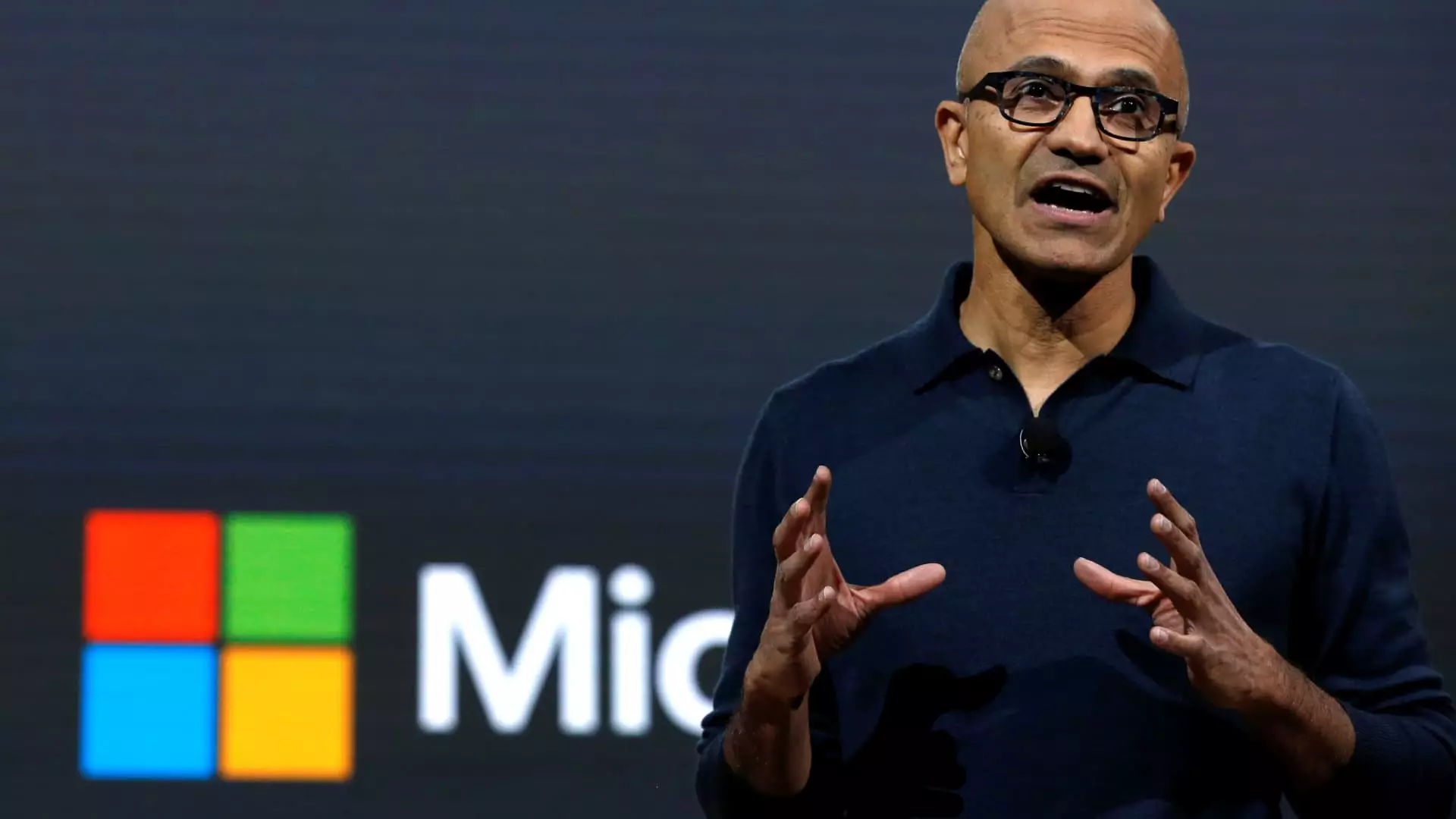Microsoft’s annual Build developer conference is set to commence, providing a platform for the tech giant to unveil its latest advancements in artificial intelligence. With recent AI-focused events by industry peers such as OpenAI and Google, Microsoft is eager to showcase its innovative projects. The company’s unique advantage in the AI landscape stems from its ownership of Windows, which boasts a vast userbase. CEO Satya Nadella has boldly stated that by 2024, AI will be seamlessly integrated into every PC, underscoring Microsoft’s commitment to AI integration. Building upon existing offerings like the Copilot chatbot assistant, Microsoft aims to delve deeper into embedding AI within Windows and elucidate the possibilities it holds for users of new AI-enabled PCs.
For Microsoft, the challenge lies in maintaining its position as a frontrunner in AI while rejuvenating PC sales, which have witnessed a slump in recent years following the pandemic-induced upgrade cycle. Analysts remain optimistic about the resurgence of the PC market, citing positive feedback from customers and increased notebook builds by original design manufacturers (ODMs). Recent data from Gartner indicates a slight uptick in PC shipments, signaling a potential revival in demand. Microsoft’s strategic focus on introducing new AI tools could serve as an impetus for both enterprise and consumer customers to upgrade their existing PCs, thereby driving revenue growth. By enhancing the functionality of Windows through AI integration, Microsoft can enhance user engagement, encourage adoption of high-end PCs, and potentially boost search revenue.
One of the key hardware components essential for AI-enabled PCs is the neural processing unit (NPU), which surpasses the capabilities of traditional central processing units (CPUs) by catering specifically to AI tasks. Companies like Intel, AMD, and Qualcomm will provide the chips powering Microsoft’s AI PCs, enabling offline AI processing tasks. These chips will enable users to leverage AI functionalities without requiring a constant internet connection, such as generating summaries from transcriptions using voice commands. With the evolution of neural processing units, AI PCs are poised to revolutionize tasks like language translation, automation inferencing, and immersive gaming experiences.
Alongside its technology partners, Microsoft is actively exploring the realms of AI to unlock new possibilities for users. By harnessing AI capabilities within Windows and collaborating with industry leaders like OpenAI, Microsoft aims to redefine user experiences and drive innovation in the PC market. As the AI landscape continues to evolve, Microsoft remains at the forefront of AI research and development, paving the way for a future where AI is seamlessly integrated into everyday computing experiences. With a focus on empowering developers to create AI-driven solutions like Copilot chatbots, Microsoft is aligning itself with global trends towards AI-driven technologies.
Microsoft’s vision for AI and the future of Windows in the PC market reflects a strategic shift towards AI integration and user-centric innovation. By leveraging its Windows ecosystem and forging strategic partnerships in the AI space, Microsoft is poised to shape the future of computing through AI-driven solutions. As the tech industry embraces AI as a transformative force, Microsoft’s commitment to AI innovation positions it as a key player in driving the next wave of technological advancements in the PC market.


Leave a Reply
You must be logged in to post a comment.